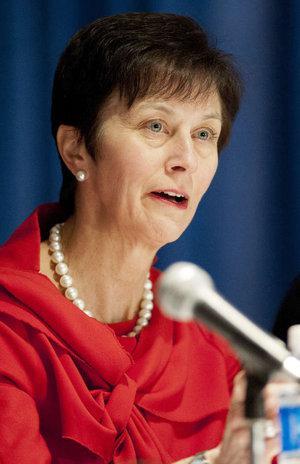
Karen Peetz: the most powerful woman in banking
There are a couple of recent studies that may not be causal factors of one another, but their relationship is hard to ignore: women are more satisfied than men with the success of businesses that they start, and women tend to start businesses for social and environmental change, rather than money being the ultimate goal.
91% of women who owned small businesses felt their ventures were currently successful, as opposed to 80% of men – despite women being less confident about the state of the American economy. Business is all about enriching the flow of economy, and exchanging goods, services, and capital – but it’s undeniable that our physical world and its people are suffering. Being an entrepreneur doesn’t have to mean sacrificing the wellbeing of people and places in order to make a profit, and it looks like women are ahead in figuring that out.
And what’s more, Senator Kirsten Gillibrand speculated in Businessweek that women would run major U.S. banks before they ran the White House. If this actually transpires, I’m excited to see where the future of banking goes. Not to assume that all women who start social- and environmentally-conscious businesses will be the ones to take charge of major financial investment institutions, but…oh, what the heck, a girl can dream: the nature of banks might become more willing to invest in human capital and development, rather than whatever will yield the most profit.
Karen Peetz, the Bank of New York Mellon Corporation Vice Chairman and also featured alongside Gillibrand in Businessweek, has been named the most powerful woman in banking by American Banking. She says that the lack of women at the top in banking isn’t “some sinister plot,” and is taking action toward equalizing representation by heading up BNY Mellon’s Women’s Initiatives Network, which helps women working for Mellon around the world advance professionally.
So women are helping other women’s careers, and the careers that women start are contributing to social and environmental change. This isn’t to create a stark line that denotes men as obsessed money chasers and women as noble do-gooders, but hopefully the example that some female entrepreneurs and businesswomen are setting will spread to everyone who makes the global economy flourish.
April also writes for her own blog, Adejarlais

